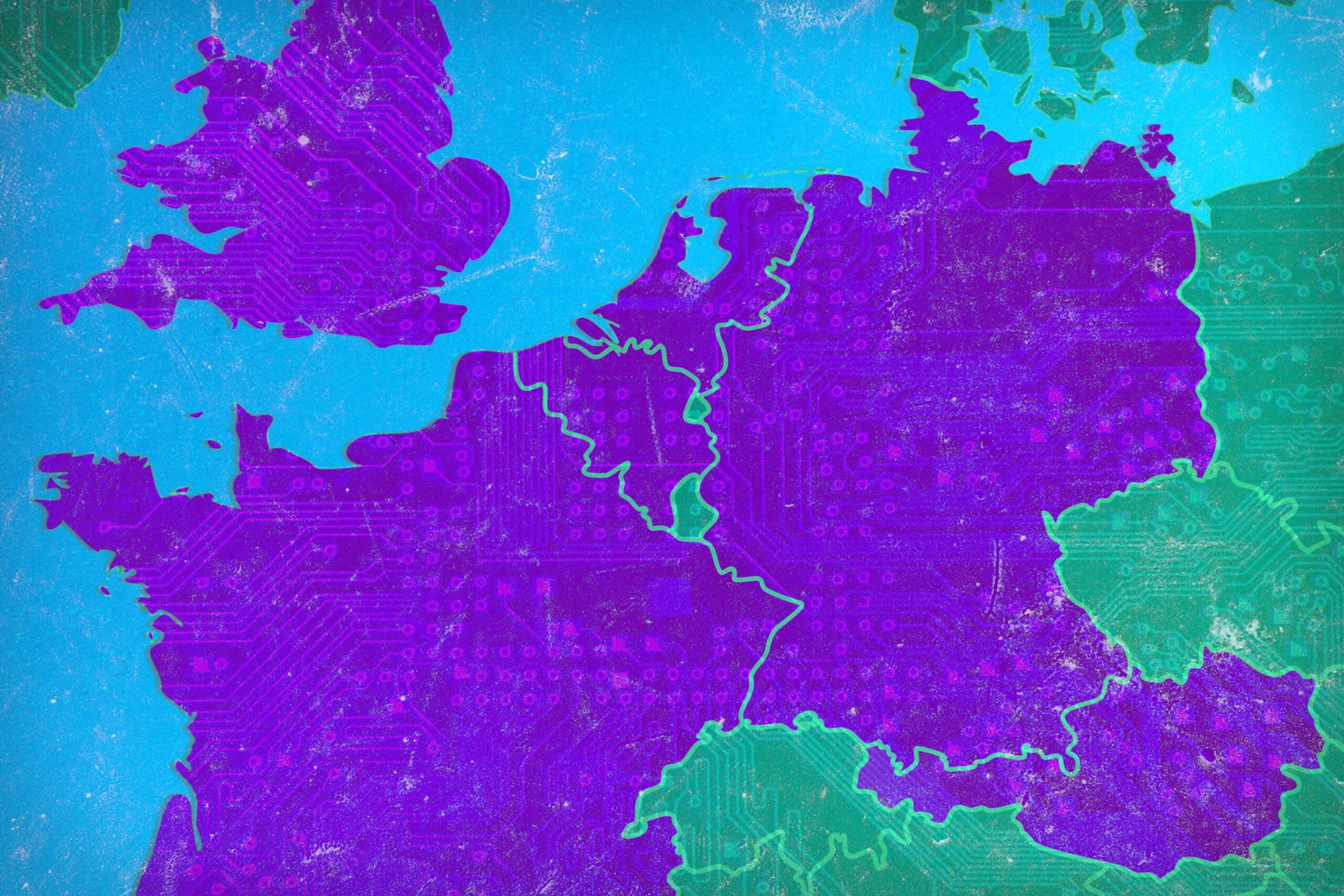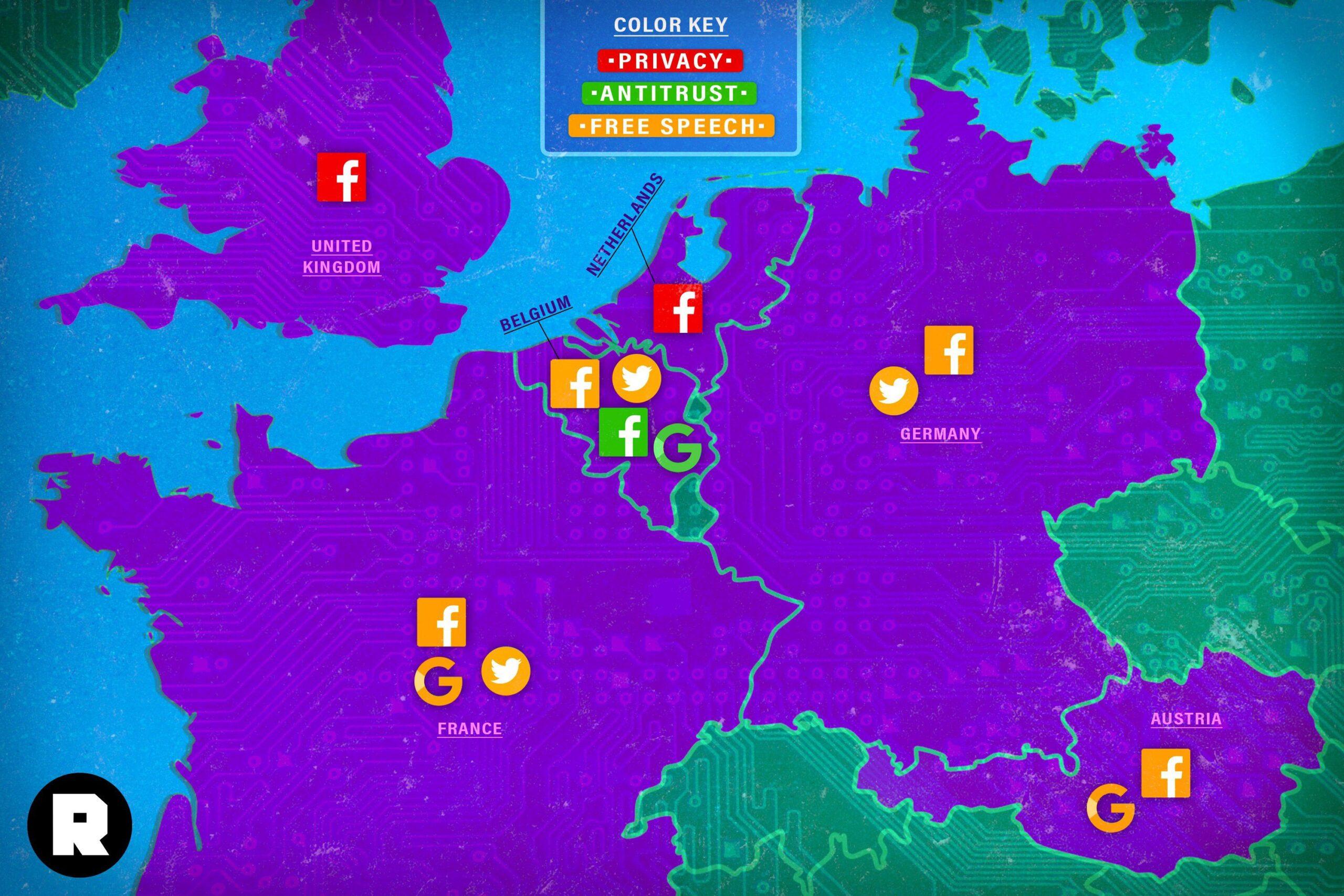
Europe has long been a regulatory nuisance to America’s biggest tech companies, issuing small fines and stern declarations that tech giants must do more to responsibly police their own content. But this year the European Union has begun leaning into its punches, most notably in the form of a record $2.7 billion fine against Google for the way it serves search results. The EU found Google was prioritizing results from its own comparison-shopping service when users searched for products, thereby limiting the ability for smaller online shopping rivals to compete. Google has said its search methodology benefits users and doesn’t give the company an insurmountable advantage over firms such as eBay and Amazon. The company is considering appealing the decision.
The Google fine may escalate the longstanding regulatory tension between Silicon Valley and Europe and open the floodgates to more crackdowns. Investors and government officials on both sides of the pond are getting increasingly comfortable using the M-word — monopoly — to describe the dominance now exerted by Google, Amazon, Apple, Facebook, and Microsoft over the digital ecosystem. Google and Facebook in particular, which have revolutionized the way we organize and distribute information, have become targets of regulators that believe they have amassed too much power. No company has ever wielded influence to the tune of a billion active users before; Google and Facebook both boast multiple products on that scale. As they grow, so do the targets on their backs.
But this is not just a fight being waged by the EU. Individual European countries are also trying to curb the tech giants’ power, and they’re increasingly using legitimate punishments to achieve their aims. Here’s a look at the various ways Europe is trying to rewrite the ways the online world is governed.

United Kingdom vs. Facebook/WhatsApp
Privacy
In November the United Kingdom passed the Investigatory Powers Act, a sweeping new surveillance law that allows the government to access data about citizens’ web-browsing habits for up to a year. However, following a string of terrorist attacks in London, U.K. officials are pushing tech companies to grant them even more access to user data. In particular, officials have offered mixed messaging on whether they support the end-to-end encryption that is now standard in chat clients such as WhatsApp. Prime Minister Theresa May has called for an international surveillance apparatus to combat terrorism. “We need to work with allied democratic governments to reach international agreements that regulate cyberspace to prevent the spread of extremist and terrorism planning,” she said after a June attack that killed eight.
Brussels (EU Headquarters) vs. Google
Antitrust
That big fine may just be the beginning of Google’s antitrust problems. The company must devise a way to fairly highlight smaller competitors in search results within 90 days or face further fines. But any solution that assuages the EU is also likely to undermine Google’s robust ad business. What’s more, the EU is still conducting antitrust probes concerning Android and AdSense, and EU antitrust chief Margrethe Vestager has said she may target services such as Maps and restaurant reviews as well.
Brussels vs. Facebook/WhatsApp
Antitrust
Facebook was hit with a $122 million fine over its handling of its $19 billion acquisition of WhatsApp in 2014. The company initially said it wouldn’t match user accounts on WhatsApp with those on Facebook, then proceeded to add this functionality after a change to WhatsApp’s privacy policy in 2016.
Brussels vs. Facebook, Twitter
Free Speech
Following the rapid spread of misinformation online during the 2016 U.S. presidential election, European regulators demanded that tech companies make an effort to combat fake news before pivotal 2017 elections in France and Germany. For now, the EU is asking tech companies to regulate themselves, but officials haven’t ruled out more stringent measures. Facebook has responded by rolling out fake-news filters in multiple countries.
Austria vs. Facebook, Google
Free Speech
In May, an Austrian court ruled that political posts deemed hate speech had to be removed not only from the social network in Austria but across the entire world. The decision could set a precedent where individual countries attempt to assert their own free speech policies across the global web. The case has been likened to Google’s challenges with the EU’s “right to be forgotten” principle, which grants Europeans the ability to scrub character-damaging search results from the internet en masse.
Germany vs. Facebook, Twitter
Free Speech
In June, Germany passed a law allowing it to fine social media companies up to €50 million ($57 million) for not properly policing hate speech on their sites. Companies such as Facebook and Twitter must remove illegal hate speech within 24 hours of receiving a complaint, or they could be subject to the fine.
France vs. Facebook, Twitter, Google
Free Speech
In conjunction with the U.K., France is considering a law that would fine internet companies for failing to remove terrorist propaganda in a timely fashion.
The Netherlands vs. Facebook
Privacy
Dutch authorities found in May that Facebook wasn’t telling users enough about how it was using their personal data, as the social network employed tactics such as serving targeted ads based on a person’s sexual orientation. France and Belgium also called Facebook out for similar violations.